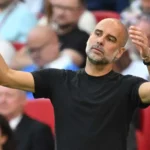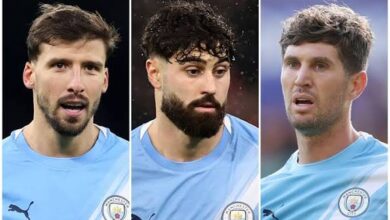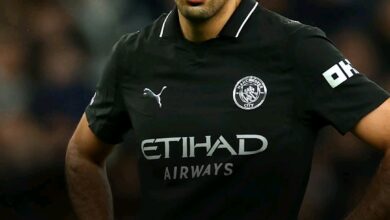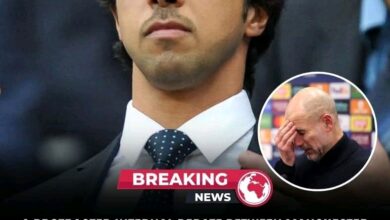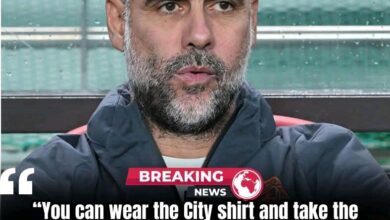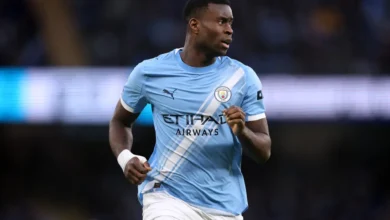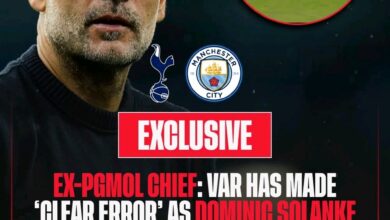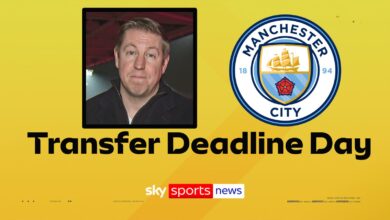The EIGHT Manchester City players out of contract in 2026 and what their futures hold
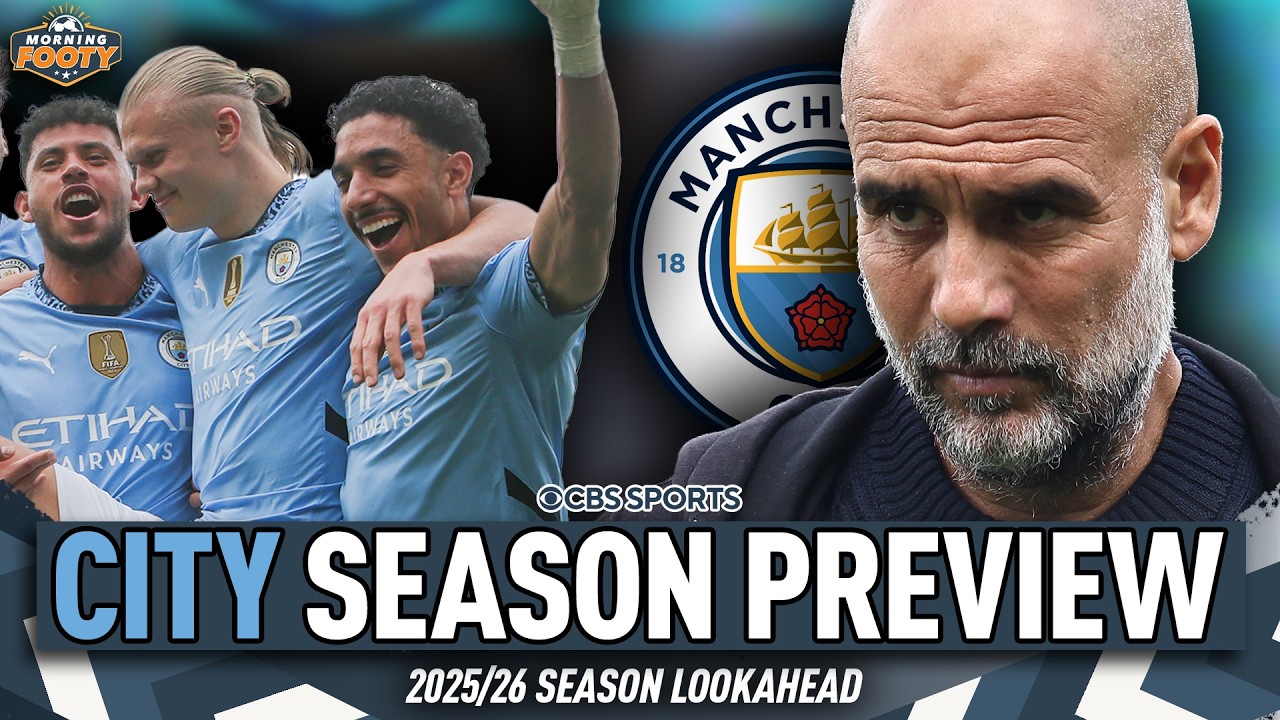
Guardiola’s Manchester City project has been characterized by an unwavering commitment to squad refresh and tactical evolution. Since his arrival in 2016, the Spanish manager has overseen multiple generations of players, each contributing to the club’s unprecedented success while understanding that no individual is bigger than the collective vision. This philosophy has seen numerous club legends depart at what seemed like the peak of their powers, from Sergio Agüero to David Silva, as the club prioritized long-term sustainability over short-term sentiment.
The current situation mirrors previous crossroads moments in City’s recent history. With several influential players entering the final years of their contracts, the club faces the delicate balance of maintaining competitive strength while planning for the future. The financial implications of these decisions cannot be understated – allowing valuable assets to leave on free transfers would represent significant losses, both in terms of transfer fees and squad depth.
The upcoming summer window could therefore prove to be one of the most transformative in recent memory, with the potential for multiple high-profile departures and arrivals that could reshape the team’s identity for years to come.
Ederson: The Crossroads for City’s No.1
At the heart of many of these difficult decisions sits Ederson, Manchester City’s Brazilian goalkeeper who has been instrumental in revolutionizing the position under Guardiola’s tutelage. Since his arrival from Benfica in 2017 for £35 million, Ederson has redefined what it means to be a modern goalkeeper, combining traditional shot-stopping abilities with exceptional distribution skills that have become fundamental to City’s playing style.
The 31-year-old’s statistics from the 2023-24 season tell a story of continued reliability despite the team’s overall struggles. Making 40 appearances across all competitions, Ederson conceded 54 goals, a figure that, while higher than in previous seasons, reflects the defensive vulnerabilities that plagued the entire squad rather than individual shortcomings. His weekly salary of £100,000, translating to £5.2 million annually, represents excellent value for a goalkeeper of his caliber and importance to the team’s tactical framework.
However, Ederson’s future at the Etihad Stadium is far from certain as he enters the final twelve months of his current contract. The goalkeeper’s last contract extension was signed in 2021, and since then, the landscape has changed considerably. The emergence of Saudi Arabian clubs as major players in the transfer market has created new dynamics, with several high-profile goalkeepers already making lucrative moves to the Middle East.
The Saudi factor cannot be ignored when considering Ederson’s future. Reports have consistently linked him with moves to the Saudi Pro League, where clubs have demonstrated their willingness to offer astronomical wages that dwarf even the most generous European contracts. For a 31-year-old goalkeeper who has already achieved everything possible at club level with City, the financial security offered by such a move could prove irresistible.
From City’s perspective, the decision becomes even more complex when considering the potential transfer fee. If Saudi clubs are willing to meet City’s valuation, the summer of 2024 represents the last realistic opportunity to recoup a significant portion of their investment in Ederson. Allowing him to leave on a free transfer next summer would not only result in financial loss but could also provide ammunition for critics of the club’s planning.
The challenge lies in finding a suitable replacement. Ederson’s unique skill set – combining exceptional passing range with reliable shot-stopping – is not easily replicated. Stefan Ortega, who has served admirably as backup, has shown promise during his opportunities, but whether he possesses the consistency and leadership qualities required for the number one position remains questionable. The transfer market offers few goalkeeper options who could seamlessly transition into Guardiola’s system without requiring significant adaptation time.
Ilkay Gündoğan: The Returning Captain’s Uncertain Future
The return of Ilkay Gündoğan to Manchester City in 2024 was met with widespread celebration from supporters who never truly said goodbye to their former captain. The German midfielder’s initial departure to Barcelona in 2023 had left many feeling that his City chapter had ended prematurely, making his return all the more poignant. However, his second stint at the club comes with its own set of complications and questions about long-term planning.
Gündoğan’s original departure was motivated partly by a desire for a new challenge and partly by City’s reluctance to offer long-term contracts to players over 30. His return suggests either a change in this policy or specific circumstances that made the reunion beneficial for both parties. The midfielder’s experience and leadership qualities are undeniable, and his understanding of Guardiola’s tactical demands remains as sharp as ever.
However, at 34 years old, Gündoğan represents both a solution and a potential problem for City’s squad planning. His immediate impact and leadership capabilities are valuable assets, particularly given the relative inexperience of some younger squad members. Yet his age also raises questions about how long he can maintain his current level of performance and whether investing in his future aligns with the club’s typical recruitment strategy.
The contractual situation adds another layer of complexity. If Gündoğan’s current deal expires in 2026, City will need to decide whether to offer another extension or begin planning for his eventual succession. The midfielder’s versatility and tactical intelligence make him valuable in multiple positions, but his declining pace and physical capabilities may limit his effectiveness in certain high-intensity matches.
From a squad harmony perspective, Gündoğan’s presence brings stability and experience that could prove crucial during transitional periods. His relationships with younger players and his understanding of Guardiola’s methods make him an ideal mentor figure. However, this must be balanced against the need to provide opportunities for emerging talents and maintain the squad’s long-term competitiveness.
The Broader Context: Squad Age and Renewal
The decisions surrounding Ederson and Gündoğan are part of a broader evaluation of Manchester City’s squad demographics and future planning. Several other key players also face uncertain futures, creating the potential for significant turnover that could reshape the team’s identity.
Kevin De Bruyne, arguably City’s most influential player over the past decade, is another whose contract situation requires careful consideration. The Belgian midfielder’s injury struggles in recent seasons have raised questions about his long-term durability, while his exceptional performances when fit demonstrate his continued importance to the team’s creative output.
The club’s approach to these veterans will set important precedents for future contract negotiations and squad planning. Being too sentimental could result in an aging squad that struggles to maintain intensity, while being too ruthless might destroy the culture and leadership structure that has been carefully built over years.
Strategic Implications for the Transfer Market
The potential departures of established players would create both opportunities and challenges in the transfer market. On one hand, significant transfer fees could provide substantial funds for reinvestment in younger, potentially more dynamic replacements. The modern transfer market offers numerous talented players who could bring fresh energy and different skill sets to Guardiola’s system.
However, replacing players of Ederson and Gündoğan’s caliber and experience is never straightforward. Both players bring intangible qualities – leadership, big-match experience, and deep understanding of the club’s culture – that cannot be easily quantified or replaced through simple transfer transactions.
The timing of these decisions also coincides with increased competition from other elite clubs who are similarly looking to strengthen their squads. Manchester City’s recruitment team will need to identify and secure targets before rivals can intervene, while also ensuring that any new signings can integrate quickly into Guardiola’s demanding tactical system.
Financial Considerations and FFP Compliance
The financial implications of these contract decisions extend beyond simple transfer fees and wages. Manchester City’s ongoing scrutiny regarding Financial Fair Play regulations means that every significant financial decision must be carefully calculated to avoid potential sanctions or restrictions.
Selling established players could provide important revenue streams that help balance the books while funding new acquisitions. However, the club must also consider the costs associated with replacing these players, including transfer fees, wages, and integration expenses that might not immediately translate into on-field success.
The Saudi Arabian factor adds another dimension to these calculations. The astronomical wages offered by Saudi clubs could provide existing players with life-changing financial opportunities while offering City the chance to reset salary structures with incoming replacements.
The Guardiola Factor: Manager’s Vision vs. Board’s Strategy
Pep Guardiola’s own future at Manchester City adds another variable to these squad planning decisions. While the manager has consistently emphasized his commitment to the club, football management careers are inherently unpredictable. The decisions made regarding current players could either support or complicate any potential transition to a new manager in the future.
Guardiola’s preferences for certain types of players and his tactical requirements have shaped City’s recruitment strategy for nearly a decade. Any major squad overhaul would need to consider whether new signings align with his vision or offer enough versatility to adapt to different tactical approaches under potential future managers.
Conclusion: Balancing Sentiment and Strategy
Manchester City’s upcoming decisions regarding key players represent a crucial test of the club’s long-term planning and strategic vision. The balance between maintaining short-term competitiveness and ensuring sustainable success requires difficult choices that may not always align with supporter sentiment or player preferences.
The examples of Ederson and Gündoğan illustrate the complexity of modern squad management, where financial, tactical, and emotional considerations must all be weighed carefully. The club’s track record suggests they will prioritize long-term success over short-term comfort, but the emotional attachment to certain players and their continued contributions to team performance make these decisions particularly challenging.
Ultimately, these choices will define Manchester City’s trajectory for the next several seasons. The club’s ability to identify, recruit, and integrate suitable replacements while managing the departure of beloved figures will determine whether they can return to the summit of English and European football or face a period of transition that tests their institutional strength and strategic planning capabilities.
The summer ahead promises to be transformative, with decisions that will resonate far beyond the immediate transfer window and shape the club’s identity for years to come.


